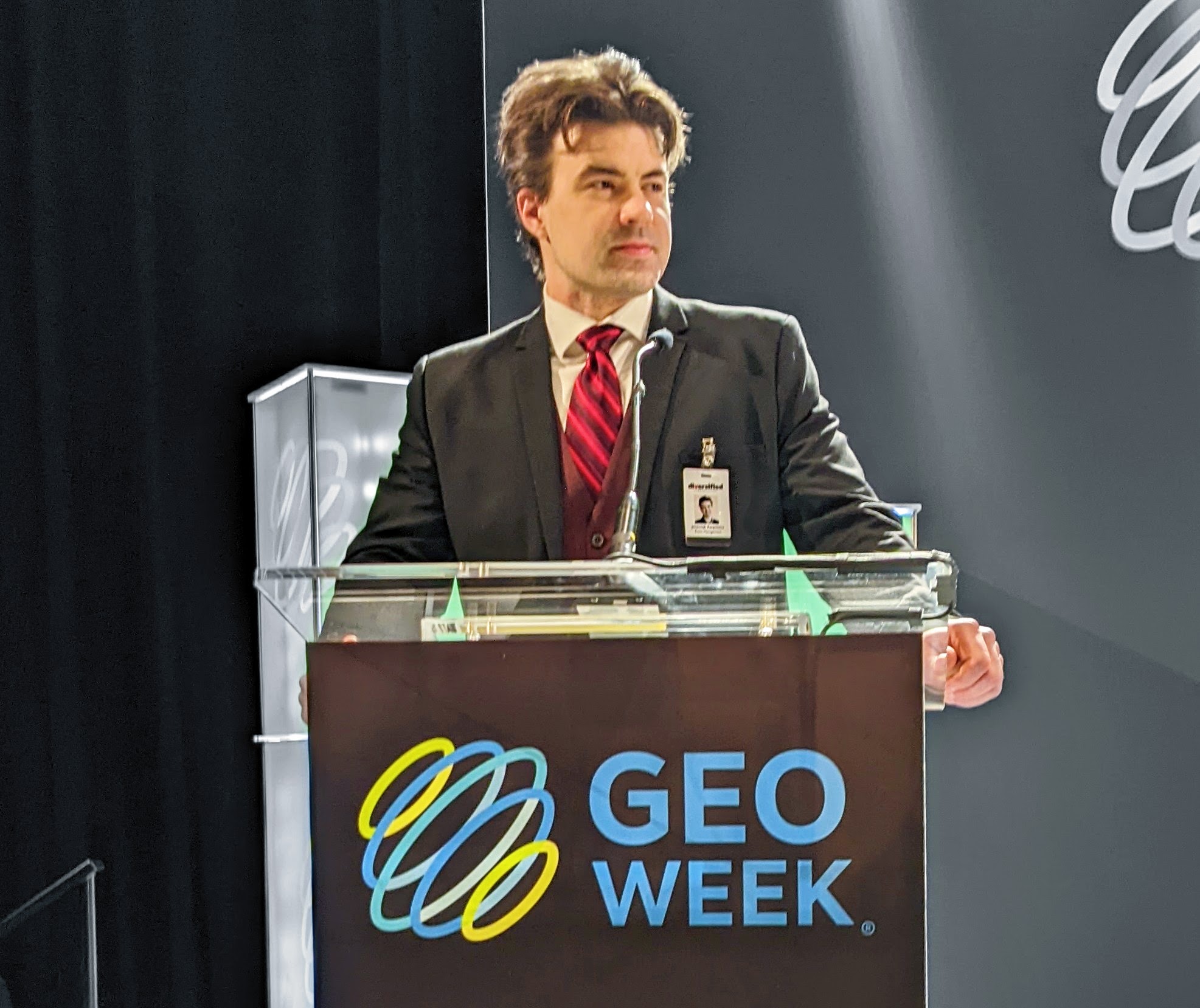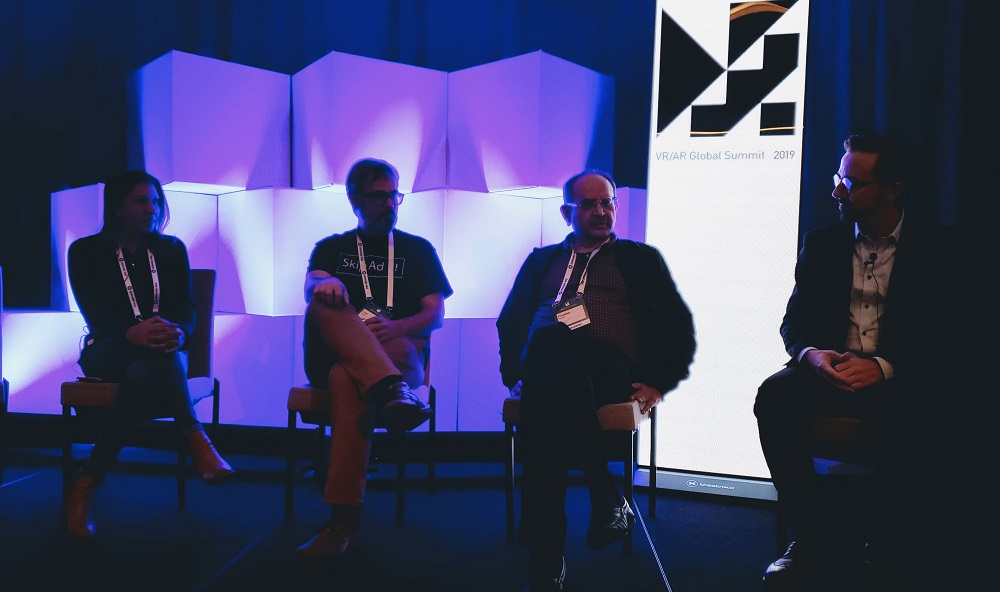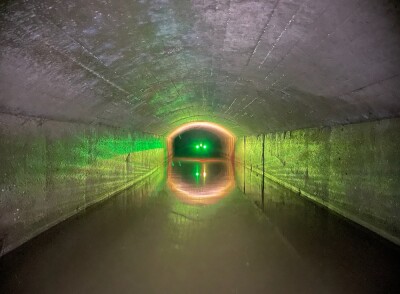Kris Kolo, Regina Noppe, Luis Martins, Pradeep Khanna and Philip Wogart took the stage at the VR/AR Global Summit in Vancouver to discuss some of the trends and opportunities in VR and AR across the globe. Their insights showcased how deep the technology has penetrated numerous markets and industries but also highlighted how there is still plenty of room for growth in each.
As the Global Executive Director of the VR/AR Association, Kris Kolo has helped to foster collaboration between innovative companies and people in the VR and AR ecosystem. Their chapters in major cities around the world connect participants with opportunities that are local and global. He mentioned how he has seen these connections make a real difference to users in terms of their bottom line and that those differences are often the result of a conversation that changes or unfolds after a connection has been established. It’s one of the reasons that he’s so focused on creating this global ecosystem.
Philip Wogart is Executive Director, DACH for the VR/AR Association. He founded HEADGEAR in early 2014 as a VR/AR studio focused on Entertainment, Marketing and Education/Training experiences. His focus these days is on building the VR/AR ecosystem and he noted that his efforts to do so in Germany are primarily in a B2B context, since that is how the German market is focused. He mentioned that many of the VR/AR developments in that region are focused on the automotive and transport industries although stakeholders in other industries have made inquiries about adoption.
Regina Noppe is from Dream2Be, a Brazilian company that works to make business global. She is very active in the community and is involved in a series of initiatives that are making it possible for the Brazilian and Canadian tech ecosystems to become closer. She mentioned how VR/AR are expanding quickly in the audiovisual and game development spaces in Brazil. She also talked about how many of the innovations that are being enabled are fueled by international partnerships that have opened up new industrial applications and use cases.
Lisbon has become a hub of tech innovation over the last couple years that the upcoming VR/AR Summit in Lisbon will highlight. Luis Martins from IT People Group has seen this change, as he works to create awareness and develop the AR community through the VR/AR Association and the Open AR Cloud Project. He mentioned that the tech boom in Lisbon over the last couple years has been six to seven years in the making. The VR/AR companies that have opened up or been founded in Lisbon are able to take advantage of the talent pool that was created to support a market for gaming that never really panned out. Because of that, professionals who learned Unity and 3D modeling are now available to create these global innovations in VR/AR.
A look at VR/AR Ecosystems in Portugal, Brazil, Asia Pacific and Germany with @kriskolodziej at @VRARASummit pic.twitter.com/qomzVNTCKj
— Jeremiah Karpowicz (@jeremiahkarp) November 1, 2019
Pradeep is the Founder and CEO of a consulting company (Global Mindset) focused on leveraging globalization & digitization for Learning & Working. He has a special interest and focus on emerging technologies including VR/AR and is working to enable the adoption of this technology in the Asia-Pacific region for the VR/AR Association, which has proven to be a challenge for numerous reasons.
In Asia Pacific, countries range from the 4 million in New Zealand to over 1.2 billion in India. That’s a wide range of countries at different stages of development with different needs. The reach of VR/AR in each is distinct as well, since over 2,000 companies focused on VR/AR are operating in China, with over 1,000 in India. The biggest challenge is that with so many different people and companies, nobody really knows who’s who, which makes making the right connections difficult. It underscores a need to build an ecosystem.
While all of the participants talked through challenges and opportunities that were specific to a given region or market, they all agreed that technical innovations need to be focused on demand and the users. Building a community to build a community doesn’t make sense. It’s all about aligning the business needs. Being able to create great products while establishing best practices is great, but all of that needs to be supported by interesting connections between people and organizations.
These challenges and similarities underscored how VR/AR is still an emerging industry. It’s why a better understanding of the needs of the user, no matter where they’re located or what industry they work in, is essential in order to enable adoption that will positively impact established workflows and the bottom line.






